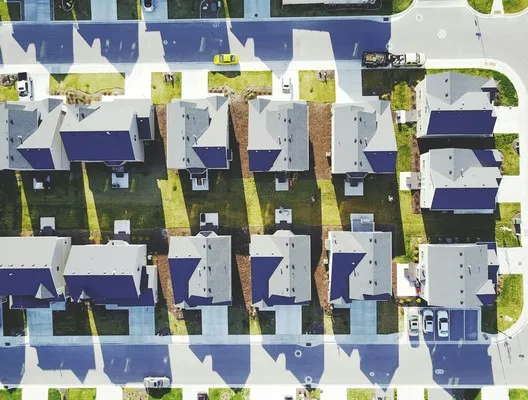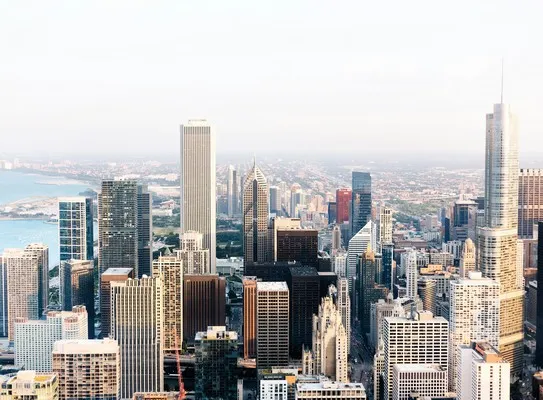Table of Contents
- Introduction to Metropolitan Areas
- Defining a Metropolitan Area
- The Social Structure of Metropolitan Areas
- Economic Dynamics of Metropolitan Areas
- Spatial Organization and Urban Planning in Metropolitan Areas
- Challenges Facing Metropolitan Areas
- Conclusion
Introduction to Metropolitan Areas
In modern sociology, metropolitan areas are essential units of study, reflecting complex and evolving urban ecosystems. Broadly, a metropolitan area refers to a large population center—often a city and its surrounding regions—where economic, cultural, and social life interconnects in intricate ways. As urbanization has increased over recent centuries, metropolitan areas have become crucial not only for economic production but also for cultural exchange, social diversity, and the development of modern lifestyles.
Understanding metropolitan areas requires exploring the various components that create and sustain these spaces, including population density, social stratification, economic functions, and spatial organization. For undergraduate sociology students, metropolitan areas provide a foundation for analyzing a range of social phenomena, from social mobility and class disparities to urban planning and environmental challenges.
Defining a Metropolitan Area
A metropolitan area is typically defined by its concentration of people, services, and industries. Unlike smaller urban or rural regions, metropolitan areas are hubs of economic activity and cultural exchange, often covering large geographical areas that include both urban centers and suburban or even rural communities. The core city, or “central city,” is typically the most densely populated part of the metropolitan area, surrounded by suburbs that may spread out over significant distances.
Key Characteristics of Metropolitan Areas
- Population Density: Metropolitan areas are marked by high population density, particularly in the core city. This density shapes the social life, cultural trends, and economic opportunities available in the area.
- Economic Centers: Metropolitan areas house significant businesses, corporate headquarters, and industries, making them critical economic engines in both national and global contexts.
- Cultural Diversity: Due to the influx of migrants from diverse backgrounds, metropolitan areas are often culturally diverse, creating a unique space for multiculturalism, social interaction, and conflict.
- Suburban Spread: While metropolitan areas have dense urban centers, they also feature sprawling suburban regions, where many residents live and commute to the central city for work or leisure.
- Infrastructure and Services: Extensive infrastructure—public transit, highways, hospitals, educational institutions—is required to support large populations, and metropolitan areas are typically at the forefront of innovations in these areas.
Metropolitan Area vs. Other Urban Forms
It’s important to distinguish metropolitan areas from other forms of urban development. Unlike a mere city or a town, a metropolitan area includes a central city and its surrounding regions, often blending urban and suburban characteristics. Megacities, on the other hand, are very large cities (often with populations exceeding 10 million) and are a specific type of metropolitan area, though not all metropolitan areas are megacities. Understanding these distinctions is key for examining the variety of social, economic, and environmental dynamics that metropolitan areas encompass.
The Social Structure of Metropolitan Areas
Metropolitan areas are characterized by a complex social structure, influenced by factors like social class, ethnicity, and education. These regions are microcosms of broader societal trends, allowing sociologists to examine issues of inequality, identity, and social mobility in a concentrated context.
Social Class and Stratification
Metropolitan areas often reflect sharp social stratification, with affluent neighborhoods existing alongside areas facing economic hardship. Economic opportunities may be abundant, but they are unevenly distributed. High-income areas often feature better amenities, such as quality schools, healthcare facilities, and green spaces, whereas low-income neighborhoods may suffer from limited access to these resources. Sociologically, these disparities can lead to social tensions, limited social mobility, and even urban conflict.
Ethnic and Cultural Diversity
One of the defining aspects of metropolitan areas is their cultural diversity, brought about by internal migration from rural areas as well as international immigration. In many metropolitan areas, residents from varied ethnic backgrounds live and work together, contributing to a rich cultural mosaic. This diversity fosters social exchange but can also result in social divisions or tensions. Ethnic enclaves, where specific cultural groups settle and establish businesses, are common in metropolitan areas and can influence social integration, identity, and cultural preservation.
Education and Social Mobility
Metropolitan areas are often centers of education, hosting numerous universities, colleges, and research institutions. Access to higher education in metropolitan areas provides pathways for social mobility, as individuals can attain degrees that improve their job prospects. However, education-related inequalities also persist, with economically disadvantaged communities often experiencing limited access to quality schooling and, therefore, fewer opportunities for social advancement. Sociologically, this creates a cycle of poverty that is challenging to disrupt without targeted interventions.
Economic Dynamics of Metropolitan Areas
The economic life of metropolitan areas is as complex as their social structure, driven by a blend of industry, service sectors, and informal economies. These areas are pivotal in national and global economic systems, acting as centers for business, finance, and technology.
Employment and Labor Markets
Metropolitan areas offer a range of employment opportunities, particularly in the service sector, technology, and finance. Labor markets in these areas are highly competitive, and wages often vary dramatically between different sectors and skill levels. While some workers can attain high salaries and upward mobility, others may be confined to low-paying jobs in the informal economy. This economic disparity is a key area of study for sociologists examining issues of inequality and precarity in metropolitan settings.
Urbanization and Economic Development
Urbanization in metropolitan areas spurs economic development, attracting investment, talent, and innovation. However, the process of urbanization can also lead to gentrification, where rising property prices push out long-term, lower-income residents. This results in displacement and alters the social fabric of neighborhoods, as wealthier individuals and businesses move in. For sociologists, gentrification exemplifies the unintended consequences of economic growth, creating a dynamic where urban development may reinforce economic inequalities.
Informal Economy
Metropolitan areas often host a significant informal economy, including street vendors, day laborers, and small-scale entrepreneurs who operate outside the formal regulatory and tax systems. This informal sector provides essential goods and services, especially for low-income residents, but it also reflects the precarity of certain forms of work. For sociology students, studying the informal economy in metropolitan areas provides insight into how marginalized populations survive in the absence of stable, formal employment.
Spatial Organization and Urban Planning in Metropolitan Areas
Get the full article AD FREE. Join now for full access to all premium articles.
View Plans & Subscribe Already a member? Log in.





